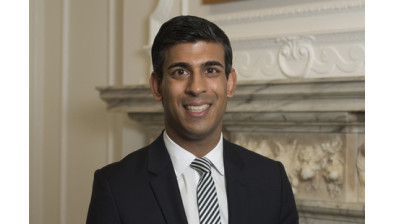BDO: More businesses expect taxes to rise rather than fall after the general election

Johnathan Hickman
More businesses expect taxes to rise rather than fall after the next general election, according to the latest research from accountancy and business advisory firm BDO.
BDO’s survey of more than 500 mid-market businesses, conducted ahead of the upcoming Autumn Statement, scheduled for 22 November 2023, revealed that more than three quarters of businesses (77%) expect to pay the same or higher taxes after the next general election, while just under a quarter (23%) expect business taxes to reduce.
The mood appears to have shifted from earlier this year. A similar BDO survey in July suggested that a majority of businesses (61%) thought that the UK’s business tax environment would improve after a general election.
This change in sentiment may reflect a growing appreciation of the state of the public finances, the outlook for interest rates and the prospects for political change.
While it has been made clear that tax cuts are not likely to be on the agenda at the Autumn Statement, when presented with a number of options that the chancellor should do to help businesses instead, survey respondents said that investment in HMRC service levels should be his top priority. At 38%, this came ahead of simplifying tax rules (35%) and cutting government spending (27%).
This echoes the findings of a recent survey conducted by the Chartered Institute of Taxation (CIOT) which identified widespread dissatisfaction with HMRC service levels among both tax agents and taxpayers, with a majority of respondents saying that poor service levels were making it harder to do business.
When asked what tax changes the chancellor should introduce once economic conditions improve, the most popular call among respondents was for new green tax breaks (31%). This came ahead of demands to cut the headline rate of corporation tax (28%), to make the 100% first year capital allowance permanent (25%) and to cut employers’ NIC (15%).
On a similar green theme, almost three quarters of respondents (74%) said they would support the introduction of a new UK carbon border tax to prevent companies from offshoring their carbon emissions.
The survey also identified a high degree of concern among SMEs about the prospects for a reduction in the rates of R&D tax relief, with a high proportion of respondents (85%) saying they may look to move their R&D activities out of the UK.
Jonathan Hickman, a tax partner at BDO said: “Set against a very challenging fiscal backdrop, the chancellor has already warned that tax cuts are off the table at the Autumn Statement. There appears to be a growing – some might say grudging – acceptance among businesses that the current high levels of business taxation may be here to stay and could even rise post the general election.
“Businesses do, however, want to see more investment in HMRC so that service levels can improve, as well as a better designed, simpler tax system.
“The proposed reforms to the UK’s complex R&D tax regime, which we may hear more about at the Autumn Statement, will provide an indication of the government’s commitment to tax simplification.
“However, we are also seeing a high degree of concern among SMEs about the proposed reduced rates of relief with 85% saying they’d consider shifting their R&D functions overseas.”
Mr Hickman continued: “While the likelihood of such a high proportion of businesses taking this course of action is probably slim, it does nevertheless reflect growing unease about the likely competitiveness of the UK’s future R&D regime when compared to other international jurisdictions.
“Our survey also shows an encouraging willingness among middle market businesses to reduce their environmental impact, but they are looking for the government to introduce new green tax breaks to help them do so.”






